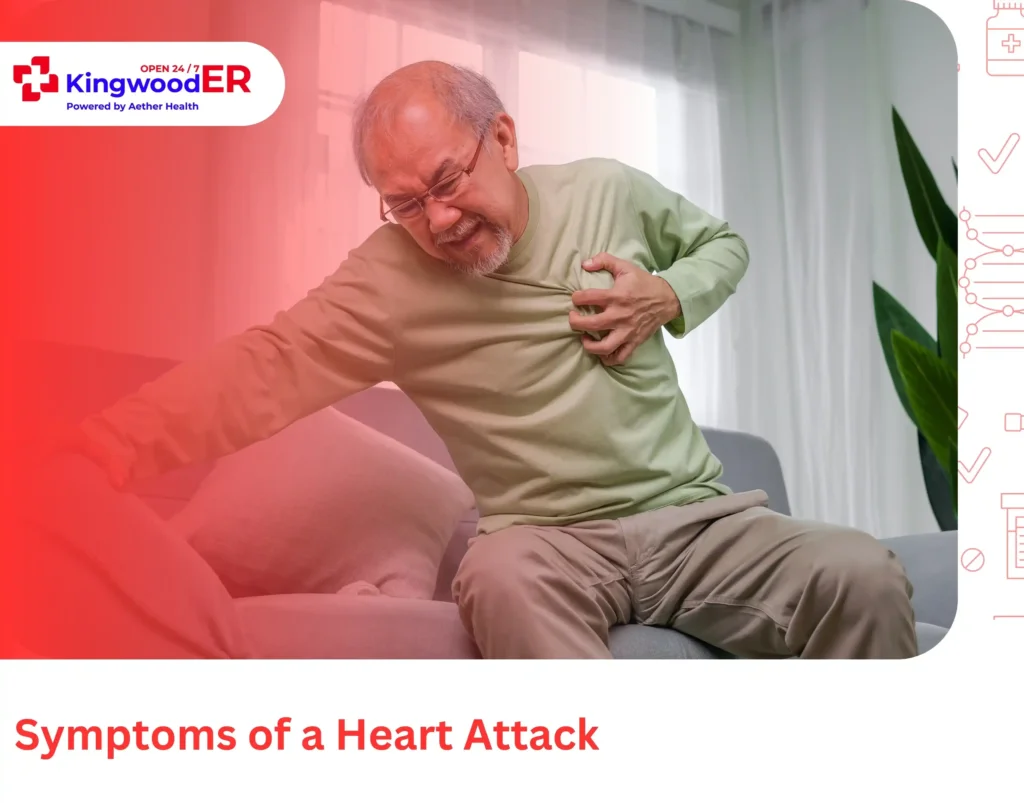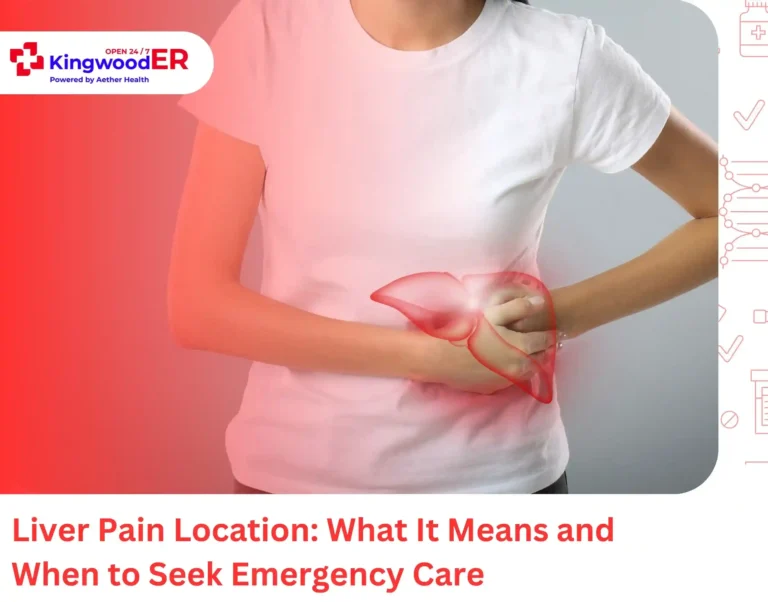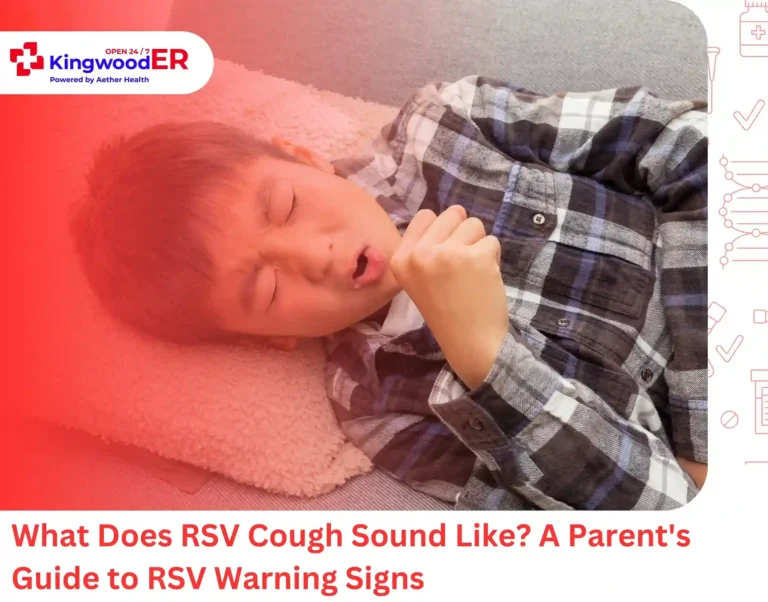You feel chest pain and immediately wonder if this is a heart attack. Most people can’t tell the difference, which explains why emergency rooms see millions of chest pain cases yearly, but only 20% are diagnosed with a heart attack or unstable angina, which is a warning sign of an imminent heart attack.
This distinction matters enormously. Heart attack pain usually feels like crushing pressure lasting over 5 minutes and often spreads to your arm, jaw, or back. While chest pain from other causes tends to be sharp, brief, and worsens when you move or breathe deeply.
Let’s understand these differences so you can make the right call about seeking emergency care for heart attack.
Symptoms of a Heart Attack

Chest pain that accompanies a heart attack can be described in many ways, including uncomfortable squeezing, pressure, fullness, tightness, burning, or pain in the center of the chest.
Chest pain is not the only sign of a heart attack, so anyone experiencing chest pain should be aware of any of these additional symptoms:
- Pain, pinching, numbness, pricking, or other uncomfortable sensations in one or both arms, the neck, back, stomach, or jaw
- Gradual onset of pain
- Shortness of breath
- Lightheadedness or dizziness
- Sudden vomiting or nausea
- Unusual fatigue
- Sudden weakness, heaviness, or aching in one or both arms
- Cold sweat or flushing
It’s also important to know that not everyone who has a heart attack experiences chest pain, so if you have any of the above symptoms, call 911 or visit the emergency room right away.
Silent Heart Attacks
Not all heart attacks come with obvious warning signs. As per the American Heart Association, silent heart attacks occur in more than 21% of cases and may only cause:
- Mild discomfort mistaken for heartburn
- Unexplained tiredness lasting several days
- New onset of shortness of breath during normal activities
- Mild flu-like symptoms without fever
Heart Attack Vs Chest Pain: Key Differences
There are many different ways to describe chest pain. Let’s discuss the differences between chest pain from a heart attack and chest pain from other conditions.
How It Feels
Chest pain from a heart attack often feels like crushing pressure, tightness, burning, or squeezing in the chest. In comparison, chest pain that feels like a sharp or knife-like pain resulting from coughing or breathing is likely not due to a heart attack. Heart attack pain often includes a feeling of fullness or uncomfortable pressure that doesn’t go away with rest or position changes.
Pain Onset
Heart attack chest pain often builds gradually over a few minutes, whereas sudden and sharp pain that only lasts a few minutes is usually due to another cause.
Location of Pain
Chest pain associated with heart attacks occurs in a diffuse area, including the middle of the chest. Pain that favors one side of the body is less likely to be due to a heart attack. The pain commonly radiates to the left arm, jaw, neck, back, or upper abdomen. In contrast, other chest pain tends to stay in one specific spot that you can point to with your finger.
Length of Pain
Heart attack pain lasts continuously for more than 5 minutes and doesn’t improve with rest, antacids, or changing positions. The pain persists and may come in waves but doesn’t completely disappear. Other chest pain can last from a few seconds to minutes, without any other symptoms, or improves when you stop moving or change positions.
Cardiac Vs Non-Cardiac Chest Pain: Comparison
| Heart Attack Pain | Non-Cardiac Chest Pain |
| Crushing, squeezing pressure | Sharp, stabbing, pinching, or aching sensations |
| Gradually builds over a few minutes | Often sudden or triggered by movement or breathing |
| Center/left chest, radiates | Localized to one area or side; doesn’t usually radiate |
| Lasts 5+ minutes continuously | Usually brief, especially if linked to posture, coughing, or anxiety |
| Not relieved by changing position, breathing, or resting | Often improves with movement, stretching, or specific body positions |
| Shortness of breath, nausea, cold sweat, dizziness, fatigue, pain in jaw or arms | Rarely involves systemic symptoms like sweating or breathlessness |
| Medical emergency—requires immediate ER evaluation | May be non-cardiac (e.g., muscle strain, acid reflux, anxiety), but still needs assessment if severe |
Non-Cardiac Causes of Chest Pain
Chest pain isn’t always cardiac. Several non-heart-related conditions can mimic heart attack symptoms but stem from other systems:
- Gastrointestinal causes: Acid reflux, esophageal spasms, or heartburn can produce burning or pressure-like chest pain, often after eating or when lying down.
- Musculoskeletal pain: Strained chest muscles, inflamed rib joints (costochondritis), or poor posture can cause localized pain that worsens with movement or touch.
- Respiratory conditions: Pleurisy, pneumonia, or a collapsed lung may trigger sharp, stabbing pain that intensifies when breathing deeply.
- Anxiety or panic attacks: These can mimic cardiac symptoms with chest tightness, rapid heartbeat, and shortness of breath, but without heart damage.
While these causes are generally less dangerous, they can feel similar to heart-related pain. If there’s any doubt, especially with risk factors present, it’s safest to visit the ER.
What to Expect at the Emergency Room for Chest Pain

If you arrive at the emergency room with chest pain, evaluation and care begin immediately. Our team is trained to quickly identify life-threatening conditions like a heart attack, pulmonary embolism, or aortic dissection. Here’s what typically happens:
- Triage and Vital Signs: A nurse checks your blood pressure, heart rate, oxygen saturation, and breathing pattern to determine the urgency of your condition.
- Electrocardiogram (EKG): This test records your heart’s electrical activity and helps detect irregular rhythms or signs of a heart attack.
- Blood Tests: Most importantly, troponin levels are tested to check for heart muscle damage. Additional laboratory tests may assess clotting, oxygen levels, and organ function.
- Imaging: A chest X-ray or CT scan may be ordered to rule out other causes such as a collapsed lung, pneumonia, or blood clots in the lungs (pulmonary embolism).
- Ongoing Monitoring: You may be connected to continuous monitors for heart rate and oxygen, with serial EKGs or blood draws to track changes over time.
Depending on the findings, the ER team may admit you for observation, safely discharge you, or transfer you to a cardiac care facility.
Don’t Ignore Your Chest Pain

If your chest pain is persistent or worsening, don’t hesitate to visit the emergency room. Even if the pain is not from a heart attack, other conditions that require prompt attention can cause chest pain.
At Aether Health – Kingwood ER, we understand that no cause of chest pain is too small. Every case of chest pain is first treated as a heart attack, and once we can rule that out, we will look into other potential causes until we can determine what is causing your chest pain.
FAQs
1. How can you tell if chest pain is serious?
If chest pain is pressure-like, lasts more than a few minutes, or occurs with shortness of breath, nausea, dizziness, or sweating, it may signal a heart attack. Pain that spreads to your arm, jaw, or back also requires urgent evaluation. When in doubt, always err on the side of caution and seek emergency care.
2. What does heart attack pain feel like vs other chest pain?
Heart attack pain feels like crushing pressure, burning, or squeezing in the chest, while non-cardiac pain tends to feel sharp or stabbing and may worsen with movement, breathing, or touch. Moreover, heart attack pain often radiates to the arm, back, or jaw.
3. How long does heart attack chest pain last?
Heart attack chest pain usually lasts more than a few minutes and may come in waves. Unlike brief or fleeting pain, heart attack pain often persists despite rest or position changes and may worsen over time.
4. When should I call 911 for chest pain?
Call 911 if you experience chest pain along with shortness of breath, cold sweat or nausea, radiating pain, lightheadedness or fainting. Never wait it out. Immediate care increases survival and reduces long-term heart damage.




